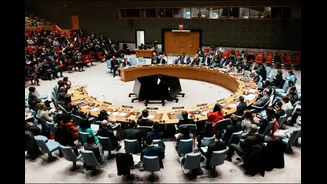Blame Game Begins
The first damaging phrase to watch out for is, "It's your fault." This phrase immediately puts your partner on the defensive, fostering a sense of blame
and judgment. When blame takes center stage, constructive discussions become challenging. Instead of focusing on shared solutions, conversations get sidetracked by assigning guilt. For instance, imagine a couple late for dinner; one might say, "It's your fault we're late!" This comment shuts down dialogue. It communicates that the other person is always wrong. A better response focuses on teamwork and finding a way to resolve the issue. Recognizing the harm from pointing fingers opens a path for open and empathetic communication. This allows you to work together to overcome challenges, supporting a more robust and resilient relationship.
Silent Treatment Danger
Next on the list of toxic phrases is the silent treatment, often conveyed by the words, "I don't want to talk about it" or the refusal to engage in discussion. Withholding communication is a passive-aggressive strategy that creates distance and emotional disconnection. Rather than working through disagreements, one or both partners withdraw, leaving the underlying issues unresolved. This can manifest as coldness or ignoring the other person. This approach doesn't address the problem; instead, it nurtures resentment and anger. By refusing to speak, partners miss out on opportunities for growth and reconciliation. If conflicts are left untouched, they fester and damage the partnership's foundation. Embracing open communication, even during tough moments, promotes closeness and mutual understanding, key to building a strong relationship.
Defensiveness: A Wall
The phrase "You always..." or "You never..." exemplifies defensiveness, a toxic habit that blocks constructive dialogue. Using generalizations like these often leads to a cycle of accusations and counter-accusations. For example, “You never listen to me!” or “You always leave the dishes in the sink.” These comments ignore specific behaviors and focus on broad criticisms. They rarely help solve problems. Instead, they imply that a partner has constant flaws. This can make the other person feel attacked, triggering defensiveness and making understanding difficult. Recognizing the problem with making broad generalizations helps build better communication. Discussing specific instances and sharing how you feel, rather than making sweeping claims, enables partners to resolve conflicts constructively. This fosters a relationship based on empathy and cooperation, creating stronger bonds.
Dismissing Feelings Hurts
Another phrase to avoid is the casual dismissal of feelings, often communicated by statements such as, "You are being too sensitive" or "Get over it." Minimizing your partner's emotions invalidates their experiences. These phrases reveal a lack of empathy and can make a partner feel misunderstood, causing feelings to become hidden. For instance, when a partner expresses sadness or worry, a dismissive response can make them feel isolated and unsupported. This breaks the emotional trust that is essential for a healthy relationship. Instead of showing empathy, such comments can be interpreted as indicating that their feelings are unimportant. This, in turn, can discourage future communication and create a relationship dynamic where partners fear expressing themselves openly. Validating and acknowledging emotions, even if they're difficult to understand, reinforces emotional safety and trust in the relationship.
Controlling Language Toxic
Finally, phrases that try to control or dictate actions, such as "You must..." or "You should..." represent toxic communication patterns. These types of phrases undermine your partner's autonomy and express disrespect. These controlling statements create a power imbalance, making the recipient feel restricted and undervalued. If a partner dictates what someone can and can't do, it takes away their freedom. An example would be, "You must visit my family this weekend" or "You should not wear that." This behavior prevents independent decisions, and limits the partner's freedom to decide on their own. Instead of controlling your partner's actions, encouraging open dialogue allows each partner to express feelings and concerns, creating a more respectful and supportive relationship. This approach cultivates trust and builds stronger, happier partnerships.




















